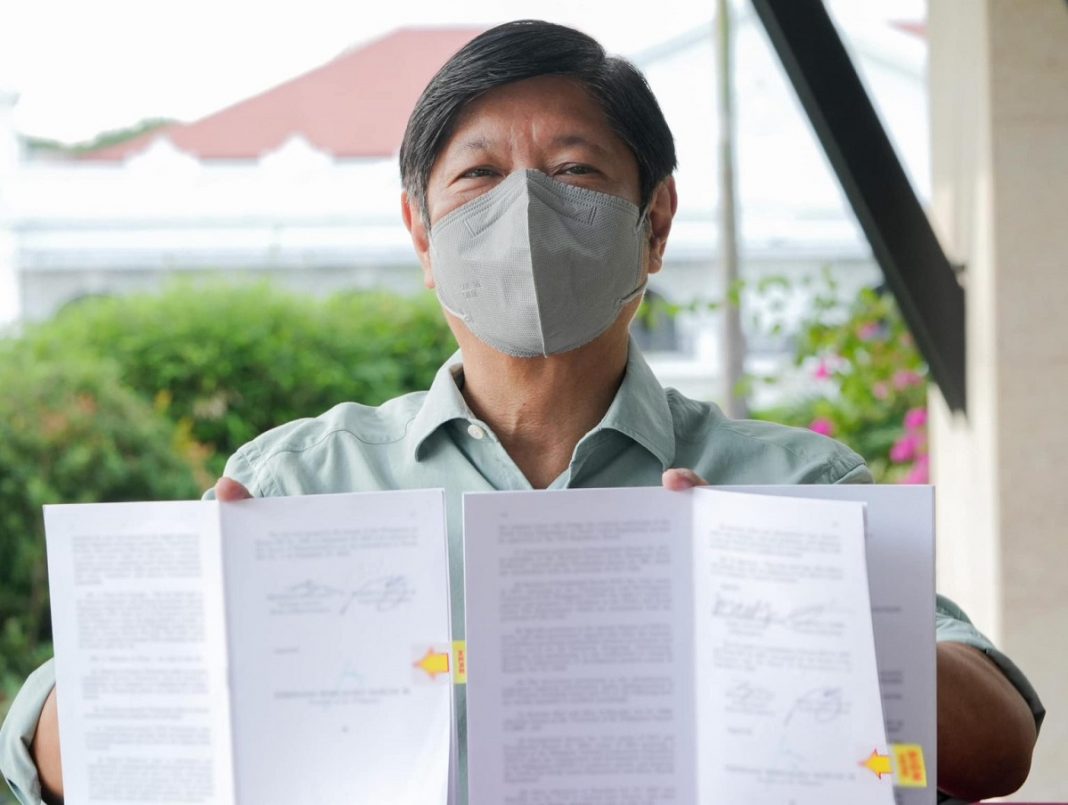Pres. Ferdinand R. Marcos Jr. signed the Internet Transactions Act of 2023 on Tuesday, Dec. 5, in Bahay Pangarap while in isolation after testing positive for Covid-19.
Marcos was scheduled to lead the ceremonial signing of the bill in Malacañang but had to cancel the event after testing positive for Covid-19 on Monday night, Dec. 4.
The passage of the Internet Transactions Act of 2023, signed as Republic Act No. 11967, is expected to provide the public with the mechanisms to confidently embrace the digital economy.
The Department of Trade and Industry (DTI) has earlier thrown its support behind the law, saying it will strengthen protection to consumers and merchants as well as accelerate the development of e-commerce in the Philippines.
Under the law, digital platforms or e-marketplaces will be liable, along with the online merchant or retailer, if they fail to perform their responsibilities and cause damage to the consumer.
The measure also sets penalties for e-marketplace, e-retailer, online merchant, or digital platforms that sell illegal digital products, ranging from P50,000 to P100,000 for the first offense to P500,000 to P1.5 million for the third and subsequent offenses.
The law also establishes a code of conduct for all companies involved in e-commerce in order to safeguard and advance consumer interests.
The legislation will also pave the way for the creation of an e-commerce bureau under the Department of Trade and Industry (DTI), which will oversee Internet-based activities that presently lack regulation.
To help the public verify information on internet transactions, the e-commerce bureau is tasked to establish and manage an online business registry of all internet merchants.
Furthermore, the Internet Transactions Act will empower the DTI secretary by giving it authority to issue take-down orders that will render digital platforms inaccessible in the country if the goods, services, or digital products advertised are found to be “imminently injurious, unsafe or dangerous to the public.”
Department of Information and Communications Technology (DICT) undersecretary Jocelle Batapa-Sigue said the new law is a “groundbreaking legislation” that represents “a significant step in building a transparent and dependable digital marketplace, essential for the growth and sustainability of our digital economy.
“It is very assuring to have a national policy that prioritizes consumer and merchant protection, safeguarding against online risks such as fraud and misinformation, while simultaneously advocating for equitable business practices,” said Batapa-Sigue, who is undersecretary for ICT Industry Development at the DICT).
“With the establishment of clear and stringent regulations and standards for online transactions, we ensure a secure and reliable e-commerce environment,” she added.




